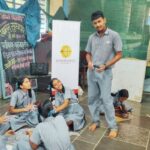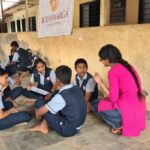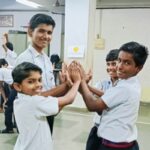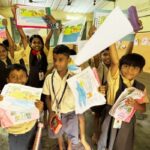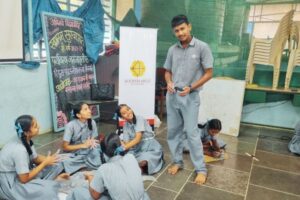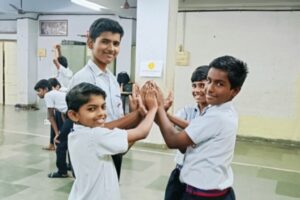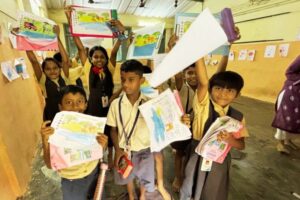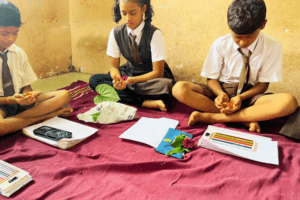Why Children
- Home
- Why Children
Why Children?
Why Mission Lehar
Students
We Touched 15000+ Lives
Donate for Hope & HarmonyKnow the prevalent issues in the youth demographic of the society at present, that prompted us to take action.
MISSION LEHAR :
The Solution Can be created, one youth at a time.
This problem is huge and beyond the complete understanding of one individual but the solution can be implemented, one individual at a time.
Yes, I want to JoinIntended Outcomes For The Age Groups
7-11 Years
- Enhanced Self-Esteem:Increased confidence and a positive self-image.
- Emotional Regulation: Improved ability to understand and manage emotions.
- Interpersonal Skills: Better communication and teamwork abilities.
- Cognitive Development: Strengthened problem-solving and critical thinking skills.
- Creative Expression: Greater engagement in creative activities like art and music.
11-15 Years
- Leadership Skills: Development of leadership qualities and self-leadership.
- Emotional Resilience: Enhanced ability to cope with stress and adversity.
- Social Awareness: Increased empathy and understanding of social issues.
- Academic Improvement: Better focus and academic performance through cognitive and emotional balance.
- Future Readiness: Preparation for future roles as responsible and conscious individuals in society.
Our Research
Objective 1: Assess Behavioral Attributes
a) Understand students’ calmness, focus, energy levels, and ability to manage emotions.
b) Evaluate tendencies such as aggression, mood stability, and adherence to instructions.
Objective 2: Measure Emotional and Social Well-Being
a) Assess communication skills, willingness to engage, and ability to express emotions.
b) Evaluate relationships with peers, family members, and overall interpersonal behavior.
Objective 3: Evaluate Learning Engagement
a) Measure enthusiasm for learning, participation in activities, and self-driven study habits.
b) Track growth in skills such as instruction-following and stress management..
Objective 4: Examine Holistic Well-Being
a) Assess overall physical health, sleep quality, and eating habits.
b) Determine levels of self-awareness and reductions in stress or behavioral concerns.
Objective 5 : Analyze Program Impact
a) Gather perceptions about the effectiveness of Mission Lehar activities.
b) Identify areas of success and opportunities for future improvement.








